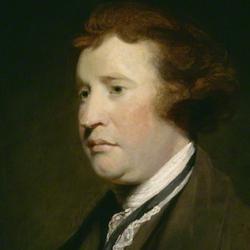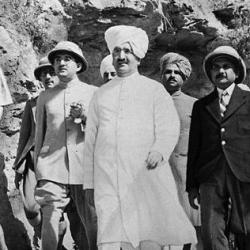T.H. Breen reviews recent books on Ben Franklin at the TLS. Along the way, he summarizes the argument of Carla Mulford’s Benjamin Franklin and the Ends of Empire: “Franklin developed a coherent theory of colonial sovereignty well before the final revolutionary crisis. . . . Franklin concluded that older, mercantilist concepts of empire served the interests neither of the British nor the colonists. He loved the empire, its power and potential, its boasted freedoms. He argued that the vast resources found on the North American continent could bring greater prosperity to British and Americans alike. It was an expansive vision of peoples throughout the Atlantic World connected by free commerce and common culture. Indeed, Franklin wrote of the potential of the British Empire in such glowing terms that some detractors suggested from time to time that he had lost touch with the true interests of the colonists.”
Franklin, in short, was not a critic of the British empire, but a critic of the imbalance between center and periphery in the empire: “Franklin always insisted on equality within the empire. He contended that there was no justification for treating an American subject as a lesser being who did not possess the same rights as a person who happened to have been born in England.” In practice, this meant that Parliament should leave internal colonial business to the colonies, and work in terms of an empire held together by “allegiance to one Prince, and to the common law . . . as it existed in the old provinces or mother country, before the colonies or new provinces, were formed.” He proposed the Albany Plan of Union in 1754, which “would have created a Grand Council made up of representatives from the various colonies and charged with overseeing matters of trade and defence.”
Britain wasn’t interested in equality, Franklin discovered: “Franklin spent many years in London—most of the last thirty-three years of his life—making the rounds of the great and the good and drawing on his growing reputation as a world-class scientist. He gained access to the key members of the cabinet who oversaw American affairs. But however passionately Franklin argued for greater political and economic equality in the empire, his appeals fell on deaf ears. The scores of essays that he published in leading British newspapers had no impact on the views of the ruling class.”
He wrote in 1759, “The Prevailing Opinion, as far as I am able to collect it, among the Ministers and great Men here, is that the Colonies have too many and too great Privileges; and that it is not only the Interest of the Crown but of the Nation to reduce them.” And it wasn’t merely the elites. Everyone in England, he wrote wryly, thinks “himself as a Piece of a Sovereign over America; seems to jostle himself into the Throne with the King, and talks of OUR Subjects in the Colonies.” When he was accused of treason before the Privy Council in 1774, he knew that his dream of an enlarged British empire was dead.















